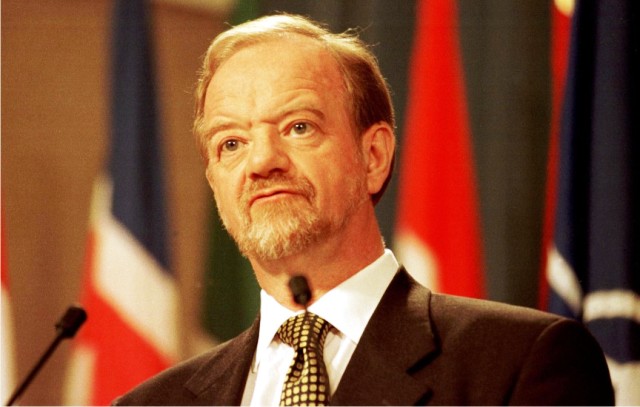Opinion
Enforcing Rivers UBE Law

A former British senior government official, Robin Cook, once said, “Education is more than a luxury; it is a responsibility that society owes itself”.
Similarly, the 15 years old Pakistani activist, Malala Yousafzai, who was shot by Taliban for advocating girl’s education lent her voice to the importance of education by saying, “let us pick up our books and pencils. They are our most powerful weapons”.
The remarks of the above two personalities identify two key stakeholders in the education industry – the government and the society comprising pupils or students and parents or guardians.
It follows that the government must be alive to its responsibility of providing basic education while the society must take advantage of the basic education to midwife a better future for the country.
This is where the Rivers State Universal Basic Education (RSUBE) Law Number 4 of 2005 readily comes to mind.
According to Section 1 of the law, every child of primary and junior secondary age in Rivers State is provided free and compulsory basic education, while Section 3 states that, “The compulsory free Universal Basic Education is for a period of nine years made up of six years of primary school and three years of junior secondary school education”.
For emphasis, Section 5 expressly states thus, “every parent shall ensure that his or her child attends and completes primary education and junior secondary school education by endeavouring to send the child to primary and junior secondary school”.
In other words, Section 5 expects every parent or guardian to secure a child’s registration at school and his or her regular attendance thereafter.
By way of ensuring compliance with the UBE law, Governor Nyesom Wike has stated unequivocally that basic education is free and therefore illegal fees would not be condoned in any public school in the state.
The Commissioner for Education, Professor Kaniye Ebeku and the Executive Chairman of Rivers SUBEB, Venerable Fyneface Ndubisi Akah, have warned that head teachers and principals caught charging and collecting illegal and unauthorized fees will face the wrath of the law.
Some school principals have already been suspended by the UBE Board for charging illegal and unauthorized fees.
The government’s efforts through the supervising Ministry of Education and the State UBE Board to monitor and check the head teachers and principals of public schools from taking undue advantage of unsuspecting parents and guardians is commendable. There is the need to sustain the tempo.
Meanwhile, the state Ministry of Education and state UBE board need to explain what constitutes chargeable services.
Available document at the state Ministry of Education shows that uniform, berge, file, prospectus, identity card, baret and school cardigan attract moderate charges. Other chargeable services include PTA, exam, environment, exact letters, weekly games and sports, as well as annual school sports fees.
It is the responsibility of SUBEB to carry out periodic public enlightenment on chargeable services and roles of parents and guardians to ensure compliance.
However, there is the need to ensure that all provisions of the law are enforced to enable citizens benefit from the spirit of the law. In other words, there is the need to extend the dragnet beyond suspending head teachers and principals of public schools. Defaulting parents and guardians must also face the wrath of the law.
For instance, Section 8 of the Rivers State UBE Law No. 4 of 2005 states thus; “Any parent or guardian who contravenes Section 5 or 6 of this law commits an offence and is liable on first conviction to be cautioned and discharged while on second conviction to a fine of N5000 or imprisonment for a term of one (1) month”.
The law goes further to add that on subsequent conviction, the offender is liable to a fine of N10,000 and or imprisonment for a term of two months.
To enforce the law, therefore, the Ministry of Education in collaboration with the state UBE board must synergize with the state Ministry of Justice to possibly create or establish a special court to try defaulting parents and guardians who violate the law.
This is because until defaulting parents are sanctioned by paying applicable fines or imprisoned as the case may be, the law will only remain in law books and libraries.
Without mincing words, defaulting parents and guardians must be made to face the full weight of the law for the impact of the law to be felt by Rivers people and Nigerians resident in the state.
Sika is a Port Harcourt based journalist.
Baridorn Sika
Opinion
NDDC: Time To Illuminate Homes

Opinion
When Democracy Becomes Too Expensive

Opinion
Righteous Leadership Still Thrives

-
Politics3 days ago
2027: NIGERIANS FAULT INEC ON DIGITAL MEMBERSHIP REGISTER DIRECTIVE
-

 Environment4 days ago
Environment4 days agoLAWMA Director Says Sweeping Reforms Have Improved Waste Collection
-
Politics3 days ago
LP Crisis: Ex-NWC Member Dumps Dumps Abure Faction
-

 Politics3 days ago
Politics3 days agoUmahi Dismisses Allegations On Social Media, Insists On Projects Delivery
-

 Sports4 days ago
Sports4 days agoAbia Not Sure To Secure continental Ticket
-
Politics3 days ago
NATASHA ELECTRIC VEHICLES INITIATIVE IN KOGI CENTRAL
-
Sports4 days ago
La Liga: Yamal Records First Career Hat-trick
-
Politics3 days ago
IT’S A LIE, G-5 GOVS DIDN’T WIN ELECTION FOR TINUBU – SOWUNMI

